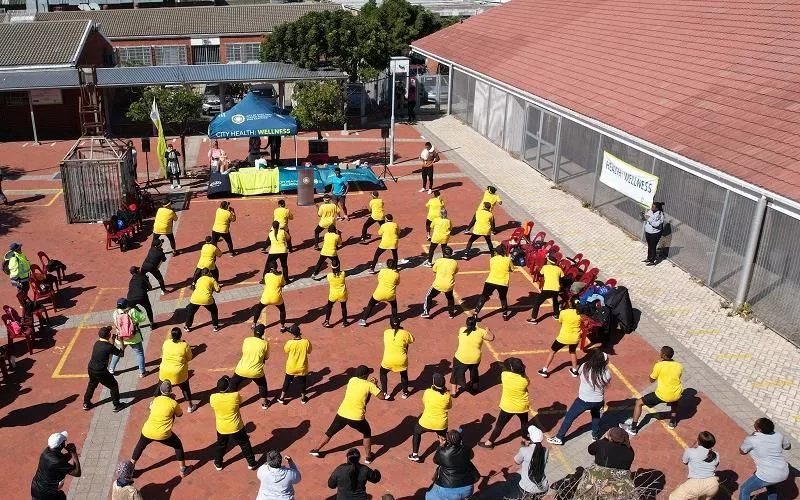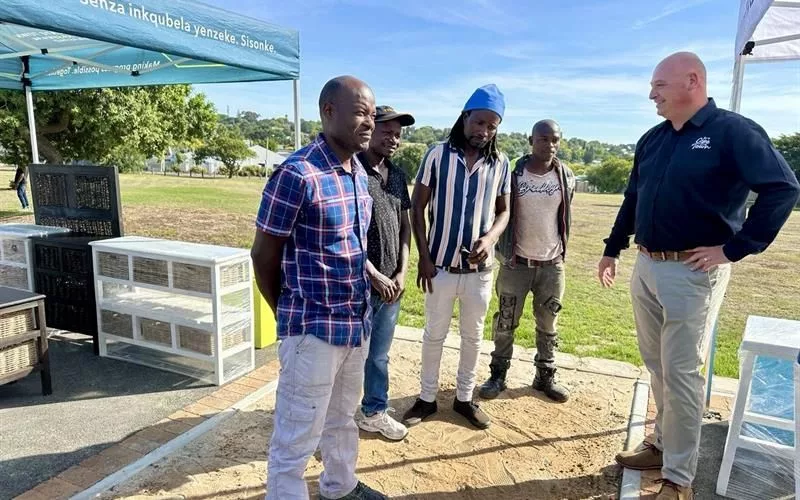World Physical Activity Day is an international event promoting physical fitness and the benefits of an active lifestyle for overall health and wellbeing. The article highlights a successful event held in Cape Town that brought together a diverse group of individuals for physical activities. The importance of physical activity extends beyond physical health to mental wellbeing, disease prevention, weight control, and immune system strengthening. Encouraging physical activity can involve group activities, minor adjustments to daily routines, and inclusive programs in the community.
What is World Physical Activity Day?
World Physical Activity Day is an international drive encouraging the global promotion of physical fitness. It’s a day set aside specifically to emphasize the significance of frequent exercise and an active lifestyle in accomplishing total health and wellbeing. This article highlights the importance of physical activity in fostering a healthy community and the multifaceted benefits of regular exercise.
World Physical Activity Day, observed every year, is an international drive encouraging the global promotion of physical fitness. It’s a day set aside specifically to emphasize the significance of frequent exercise and an active lifestyle in accomplishing total health and wellbeing. On April 5 this year, City Health made significant strides by partnering with Recreation and Parks to hold a remarkable event at Lentegeur Civic, demonstrating an ideal model of community involvement in advocating for physical fitness.
A Community Embracing Fitness
Around 80 individuals of varying ages gathered eagerly at the Civic one morning, ready to partake in a series of engaging activities tailored to increase heart rates. These types of events do more than just promote health; they also cultivate a sense of community unity, bringing together a diverse group of people from different backgrounds and age brackets.
The Recreation and Parks department plays an integral role in fostering a fit lifestyle within the community. They host physical activity sessions twice a week, inspiring residents to create time in their busy schedules for these health-enhancing endeavors. These sessions represent just one of the many services provided by the department to create health and fitness opportunities for the community.
Innovative Health Programs and Advocacy
Significantly, the Community Services and Health Directorate spearheads the ‘Live Well Challenge.’ Launched in 2018, this initiative promotes balanced diets and consistent exercise as key techniques to counteract the rising threat of diseases related to lifestyle choices.
Patricia Van der Ross, the Councillor and Mayoral Committee Member for Community Services and Health, consistently inspires others through her advocacy of physical activity for all age brackets. Five years into the ‘Live Well Challenge’, she remains a powerful source of motivation for her constituents, drawing attention to the availability of local resources and support networks. In a comforting tone, she remarks, “Age is certainly not an obstacle – let’s keep moving together for a healthier Cape Town.”
Beyond Physical Health: The Multifaceted Benefits of Regular Exercise
Indeed, physical activity extends beyond just improving physical health. Regular exercise substantially boosts mental well-being, enhances sleep quality, reduces the risk of chronic diseases such as heart disease, diabetes, and hypertension, aids in weight control, and strengthens the immune system.
The World Health Organization advises adults between the ages of 18 and 64 to dedicate 150 to 300 minutes each week to moderate-intensity exercise or 75 to 150 minutes to high-intensity exercise. However, these guidelines aren’t just limited to adults but also apply to children and the elderly. Encouraging children to partake in dynamic games or sports and urging older adults to engage in activities that enhance balance can significantly improve their overall health.
Embracing Physical Activity in Every Aspect of Life
Physical activity is not confined to solitary exercises such as running, swimming, or cycling. It can also involve group activities like sports, fitness classes, or community activities like park runs. Minor adjustments in daily routines, like opting for stairs instead of elevators or walking while on phone calls, can help counteract a sedentary lifestyle.
As World Physical Activity Day rolls around, it’s crucial to understand that physical activity is about more than just movement. It’s about fostering an environment that motivates and supports these activities – a supportive community, easily accessible facilities, and inclusive programs. City Health’s initiative serves as a shining example of the impact of united action towards a healthier community. Let’s continue to stride forward, let’s maintain our momentum, for a healthier world.
1. What is World Physical Activity Day?
World Physical Activity Day is an international event promoting physical fitness and the benefits of an active lifestyle for overall health and wellbeing.
2. What are the benefits of physical activity?
Physical activity has multifaceted benefits, including improving mental wellbeing, disease prevention, weight control, immune system strengthening, and enhancing sleep quality.
3. How does the Recreation and Parks department foster a fit lifestyle within the community?
The Recreation and Parks department hosts physical activity sessions twice a week, inspiring residents to create time in their busy schedules for health-enhancing endeavors.
4. What is the Live Well Challenge?
The Live Well Challenge is an initiative spearheaded by the Community Services and Health Directorate, launched in 2018, promoting balanced diets and consistent exercise as key techniques to counteract the rising threat of diseases related to lifestyle choices.
5. How can physical activity be embraced in every aspect of life?
Physical activity can involve group activities such as sports, fitness classes, or community activities like park runs. Minor adjustments in daily routines, like opting for stairs instead of elevators or walking while on phone calls, can help counteract a sedentary lifestyle.
6. Who can engage in physical activity?
Physical activity is not limited to adults but also applies to children and older adults. Encouraging children to partake in dynamic games or sports and urging older adults to engage in activities that enhance balance can significantly improve their overall health.












